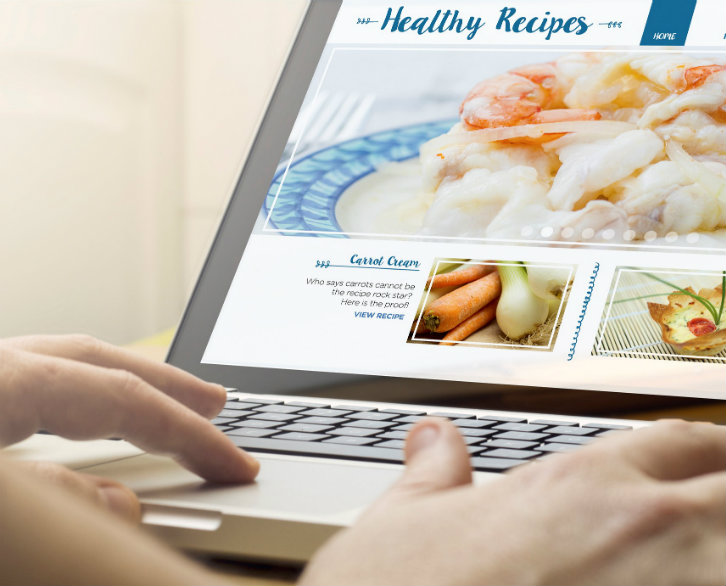
If you’re trying to lose weight, you’re well-acquainted with the ups and downs of the process. Sometimes you’re in the zone, eating right and exercising and making progress. Other times you’re doing everything right and not getting anywhere. And still other times you’re really struggling, like when you can’t get off a plateau or you’re having a problem with emotional eating.
The most important thing to realize is that you’re not alone. There are many resources out there where you can find information, support and tips. Take a look through these websites, tools, media links, blogs and apps to find the helping hand you need right now.
Calculators and trackers
Do you know your Body Mass Index (BMI)? Do you know where to look up calorie counts, or wish you had a place to track what you eat and your results? These sites will help:
- BMI calculator: Simply type in your height and weight and this calculator will tell you your Body Mass Index. A number below 18.5 is considered underweight; 18.5-24.9 is considered normal; 25.0-29.9 is considered overweight; and 30.0 and above is considered obese.
- Body weight planner: A four-step calculator where you enter your height, weight, age, sex and activity level; choose a goal weight, a goal date and an increased activity level, and receive the number of calories you need to eat per day to reach your goal weight.
- Calorie counter and diet/weight-loss journal: When you create a free account on Fitday, you can look up calorie numbers for thousands of foods and record what you eat in an online journal. The website has more than 6 million members.
- Fast-food calorie counter: Calorie King also provides calorie counts for thousands of foods, and it includes fast foods (because it’s going to happen). If you enter a food, you get all its nutrition information: calories, fat, cholesterol, sodium, carbs, and protein.
Obesity advocacy organizations and support
There are several national groups that serve as educators, advocates, and support for people living with obesity or trying to learn more about it:
- The Obesity Society: The Obesity Society has more than 2,500 professional members, many of whom are PhDs and MDs in the fields of internal medicine, family practice, endocrinology, psychology and bariatric surgery. The organization’s mission is to “advance the science-based understanding of the causes, consequences, prevention and treatment of obesity,” and to that effort it publishes two journals, current news, research and resources.
- The Obesity Action Coalition is dedicated to advocacy for and support of those living with obesity. In addition to legislative action updates and a monthly blog, the site offers webinars and the opportunity to order free copies of its brochures, posters, and magazine.
- Obesity Help is a newsy, active website that focuses on educating and supporting weight-loss surgery patients (or those considering it). You can learn about bariatric surgery, read recent articles on weight loss and health, see (or share) before-and-after photos, and connect with other people in some of the website’s many forums.
- The American Society for Metabolic and Bariatric Surgery (ASMBS) is a national society dedicated to improving public health by educating, advocating for and improving the lives of people with obesity. Its Patient Learning Center offers articles, fact sheets and FAQs on the disease of obesity, bariatric surgery, and legislative action.
Consumer sites full of ideas
Are you looking for recipes? Fitness options? Nutrition hints and tips about eating, obesity and health? Try these sites:
- EatRight is run by the Academy of Nutrition and Dietetics and covers three primary areas: food (recent topics: nutrients for vegetarians, what to eat while breast feeding, what a dietician can do for you), health (autism spectrum disorders and diet, what a dietician can do for you), and fitness (the risks of inactivity, hydrating right, building muscle). The content also is sorted into categories for kids, parents, men, women, and seniors.
- ChooseMyPlate is run by the United States Department of Agriculture. You can take quizzes on the food groups (can you name all five?), find tips for eating on a budget, calculate your correct daily calorie intake or just skip around through the interesting facts (did you know that it actually takes two cups of raw leafy greens to count as a cup of vegetables?)
Obesity in the media
Major newspapers and magazines have spent a lot of time writing about America’s obesity crisis and what can be done. A few articles and archives to browse in your spare time:
- Obesity: The Big Picture, The New York Times. A searchable archive of articles, commentary, quizzes and more that covers everything from “4 Easy Ways to Cut Down on Your Sugar Intake” to “The Key To Weight Loss is Diet Quality, Not Quantity, a New Study Finds.”
- Obesity, Time magazine: One startling headline: “Obesity Shaved Almost a Year Off Life Expectancy, Study Says.” Another: “More Than Half of American Kids May Be Obese by 35.” Click through to a story on the United States obesity trend and you’ll find real numbers from the National Center for Health Statistics.
Government health sites
A range of research, statistics and other information on obesity and weight control:
- Centers for Disease Control and Prevention: In addition to offering a wealth of U.S. data, maps and statistics, the CDC offers fact sheets, social media tools and information on trends.
- Nutrition.gov: A website sponsored by the U.S. Department of Agriculture that offers topics like heart-healthy recipes, a seasonal produce guide and articles on food safety and vitamin and mineral supplements. Its “Overweight and Obesity” page offers advice on more than a dozen topics, including how to evaluate weight-loss programs, myths surrounding weight loss and nutrition, and information on portion size.
Obesity and other health conditions
The overwhelming truth about obesity is this: It affects nearly every aspect of our health, from how our organs function to our energy levels to our psychological state. Two of the biggest health concerns are diabetes and heart disease:
- The American Heart Association site understands how you feel. For instance, in terms of the BMI classification of “obese,” it says, “Don’t be discouraged by the term. It simply means you are 20 percent or more above your ideal weight, and you are not alone.” The site covers a lot of ground on topics like how being overweight affects your health, how to eat healthy, good fats versus bad fats, and how to keep the weight off once you’ve lost it.
- The National Institute of Diabetes and Digestive and Kidney Diseases offers a wealth of information to help you understand risk factors of diabetes (and its different types), how to prevent Type 2 diabetes, and how diet, nutrition and physical activity helps the overall health of a diabetic person.
Mental health and your weight
There’s no denying that being obese can be depressing in and of itself. But there are all kinds of psychological factors that are affected by what we eat (and, sometimes even more importantly, why we eat), how much we exercise, how much extra weight we carry and how that makes us feel. Some resources:
- Overeaters Anonymous: Are you an emotional or compulsive eater? Do you have or have you had an eating disorder? Do you sometimes binge even though you aren’t hungry? Overeaters Anonymous, or OA, is structured like Alcoholics Anonymous: meetings, a 12-step program and anonymous acceptance of you and your issues. The organization also publishes a magazine, Lifeline, both online and in print.
- In both articles and blogs, Psychology Today delves into topics like emotional eating, changing how you relate to food, and whether you can be overweight and healthy. Simply go to the search page and type in “obesity” for an index of available articles.
Help in the palm of your hand
We wouldn’t be doing our job if we didn’t point out that there are tons of great apps out there that can help you count nutrition information, track your diet, set fitness goals and manage your weight loss efforts. The website Healthline named its Best Weight-Loss Apps of the Year at the end of 2017 (for both Apple and android), basing their selection on functionality, user reviews and reliability. An extra bonus: Most of the apps are free. Check out their list and see if there’s one that speaks to you.
Are you considering bariatric surgery?
It’s a big decision, with lots of details to consider. Soma Weight Loss, a Los Angeles bariatric surgery center, can help with any questions you have. To find out more or schedule a free consultation, call us at (855) 766-2411 (855-SOMA-411) or click here.




